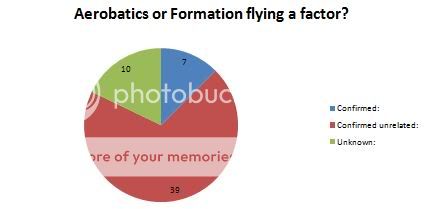With the recent accident as well as my current on-going PPL training I have carefully studied and looked at several accident reports (RV and Non RV related).
I think we all know ~80% of accidents are due to bad judgement calls somewhere (run out of fuel, flying into IFR conditions, etc.)
It got me to thinking if a RV specific database has ever been compiled (maybe from FAA records as well as other accounts like the fuel selector issue). Something fellow RV pilots and builders could learn from.
All this accidents are horrible things, even more horrible in my opinion is to NOT learn from them.
When the time comes for my first flight I would find it valuable to go through such a database and even form a checklist to check for these things in the hopes of increasing my safety and those around me.
I think we all know ~80% of accidents are due to bad judgement calls somewhere (run out of fuel, flying into IFR conditions, etc.)
It got me to thinking if a RV specific database has ever been compiled (maybe from FAA records as well as other accounts like the fuel selector issue). Something fellow RV pilots and builders could learn from.
All this accidents are horrible things, even more horrible in my opinion is to NOT learn from them.
When the time comes for my first flight I would find it valuable to go through such a database and even form a checklist to check for these things in the hopes of increasing my safety and those around me.









